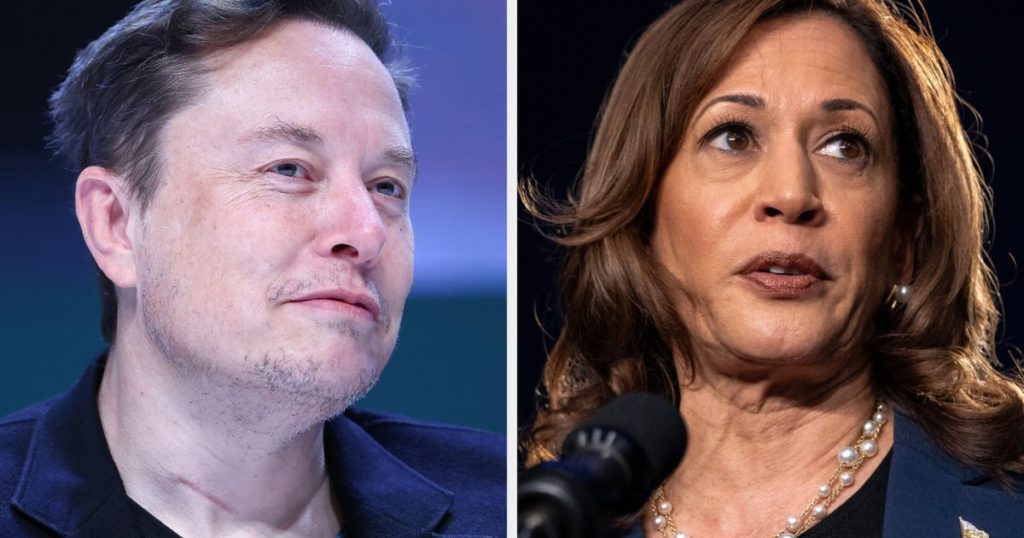A manipulated video featuring a convincing impersonation of Vice President Kamala Harris has surfaced, raising concerns about the potential for artificial intelligence to mislead viewers as Election Day approaches. The video, shared by tech billionaire Elon Musk without a clear disclaimer, alters the audio of a real campaign ad released by Harris to make false statements about her candidacy and qualifications. While the original creator of the video has disclosed that it is a parody, Musk’s post did not provide this context, leading some to question the potential for the video to confuse viewers.
The use of lifelike AI-generated content in political settings highlights the growing accessibility and sophistication of AI tools, which pose a challenge for regulators seeking to prevent deception and misinformation. Despite the availability of high-quality AI technology, federal regulations governing the use of AI in politics remain limited, leaving oversight to states and individual social media platforms. The blurred lines between satire and misleading content further complicate efforts to establish clear guidelines for the appropriate use of AI-generated media.
The fake ad featuring Kamala Harris exemplifies the potential for AI-generated content to influence public opinion and shape political discourse. Experts in AI-generated media have confirmed that much of the video’s audio was created using AI technology, underscoring the power of generative AI and deepfakes to manipulate audio and visuals. While Musk’s endorsement of former President Donald Trump may have influenced the perception of his sharing of the video, questions remain about the responsibilities of platform users and creators to disclose the authenticity of AI-generated content.
Critics of the video argue that the convincing impersonation of Harris could mislead viewers and reinforce negative stereotypes and false narratives about the Vice President. Public Citizen, an advocacy group calling for regulation of generative AI, contends that the video plays into existing themes about Harris, potentially deceiving viewers who may not recognize it as satire. The widespread dissemination of AI-generated content underscores the need for comprehensive regulations to prevent the spread of misinformation and manipulation in political messaging.
While some states have enacted laws regulating the use of AI in campaigns and elections, Congress has yet to pass comprehensive legislation addressing the potential risks posed by AI-generated content in political contexts. Social media companies like X and YouTube have implemented policies to address synthetic and manipulated media on their platforms, requiring users to disclose the use of generative artificial intelligence in videos. As the 2024 presidential election draws nearer, the debate over the regulation of AI in politics will likely intensify, prompting calls for greater oversight and accountability in the creation and dissemination of AI-generated content.
As technology continues to advance and AI tools become more sophisticated, the challenge of distinguishing between authentic and manipulated media will persist in political contexts. The case of the fake ad featuring Vice President Kamala Harris serves as a reminder of the potential risks associated with AI-generated content, raising important questions about the ethical use of AI in political messaging and the need for robust regulatory measures to protect the integrity of the electoral process.


